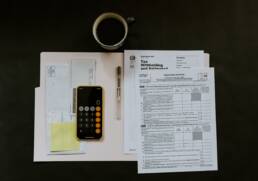MPSA Awards
Do International Employment Opportunities Impact Individuals’ Political Preferences and Behavior?
By Nikhar Gaikwad, Kolby Hanson, and Aliz Toth Robert H. Durr Award for Best Paper “applying quantitative methods to a substantive problem,” presented at the 2019 Midwest Political Science Association Annual Meeting Millions of people around the world migrate overseas for employment each year, and…
Their economic pain, our emotional gain: Can schadenfreude motivate responses to redistributive policies?
By Hannah Nam, Samuel Jens, and Yanna Krupnikov New Jersey is one of the first states expected to adopt a “millionaires tax” that raises taxes on those who make over a million dollars a year. In announcing the new policy, the state’s governor, Phil Murphy, stated, “We do not hold any grudge at all…
Govern the Ungoverned: How State Presence Leads to Civil Conflict
By Luwei Ying, Ph.D. Candidate, Department of Political Science, Washington University in St. Louis Political scientists and policy-makers have long argued that state weakness leads to civil conflict while enhancing state power helps prevent violence. Why, then, has increased state capacity…
Understanding and Reducing Biases in Elite Beliefs About the Electorate
by Miguel M. Pereira, a Ph.D. candidate in the Department of Political Science at Washington University in St. Louis. A central question in the process of representation is how elected officials gauge and respond to voter signals. As office-seekers, politicians have strong incentives to be…
How Ideology, Economics and Institutions Shape Affective Polarization in Democratic Polities
Summary by Noam Gidron, James Adams, and Will Horne Concerns over the health of democratic norms and institutions have intensified in recent years (e.g., Levitsky and Ziblatt 2018), with political polarization often cited as a key driver of democratic dysfunction. The rise of affective polarization…
How War Changes Land: The Ecological Consequences of the US Bombing of Cambodia
By Erin Lin Example of bomb found during fieldwork: B42 cluster bomb in the center-right, and a rock is on its left. (Photo courtesy of Erin Lin) The village of West Father Long lies about five kilometers out of Kampong Thom town, Cambodia, in the southerly direction. Dirt paths run east and…
The Examination of the “Other:” An Insight Into The Asian Pacific Islander Experience in the Prison Industrial Complex
By Michelle M. Hicks, Willamette University Who are the “others” inside the U.S. carceral system? According to the Bureau of Justice Statistics, the “other” is any race, which cannot be classified as White, Black, or Hispanic.[1] The “other” category is an amalgam of racial identities that…
Blue is Black and Red is White? Affective Polarization and the Racialized Schemas of U.S. Party Coalitions
By Nicholas A. Valentino and Kirill Zhirkov [youtube https://www.youtube.com/watch?v=XFMTdNxp57k] Affective polarization - the mutual partisan antipathy expressed by both Democrats and Republicans in the U.S. - has increased dramatically over the last 30 years. Both real-life political processes…
Ethnic Networks
The following is part of a series of posts written by MPSA award recipients highlighting outstanding research presented at previous MPSA annual conferences and in the American Journal of Political Science. The following AJPS Author Summary was first published on the AJPS website and is shared here…
How Governments Influence Competition between Militant Groups
By Justin Conrad and William Spaniel When Algeria descended into violence in the 1990s, two militant groups – the Islamic Salvation Army (AIS) and the Armed Islamic Group (GIA) – competed for supremacy of the rebel movement. The competition between the two groups, in fact, became a major source of…


